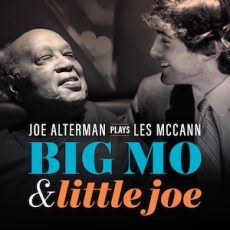
Daily Dose Of Jazz…
Joe Alterman was born November 16, 1988 in Atlanta, Georgia and graduated from New York University with both a Bachelor’s and Master’s in Jazz Piano Performance.
He has performed at iconic venues including the Kennedy Center, Lincoln Center, Birdland, and Blue Note, sharing stages with jazz greats like Houston Person, Les McCann, and Ramsey Lewis. He also had the privilege of opening for Dick Gregory at the Kennedy Center.
He leads his trio or performs solo with a deep groove, bluesy touch, and an exuberance that’s hard to resist, his playing is both deeply rooted and refreshingly modern. He has recorded eight critically acclaimed albums to his name, including the 2023 release Joe Alterman Plays Les McCann: Big Mo & Little Joe, Alterman continues to evolve as a recording artist while honoring jazz’s deep traditions.
His creativity extends to his cultural leadership and writing. As the Executive Director of Neranenah, an Atlanta-based Concert & Culture series, he celebrates Jewish contributions to music and the arts. His writing has also garnered acclaim, he has penned liner notes for three Wynton Marsalis and Jazz at Lincoln Center Orchestra albums. Alterman was the subject of Nat Hentoff’s final piece on music and in 2025, he was featured on President Jimmy Carter’s Grammy-winning album, Last Sundays In Plains: A Centennial Celebration.
Pianist, composer, writer, and cultural curator Joe Alterman continues to record and swing with style all over the world.
More Posts: bandleader,composer,history,instrumental,jazz,music,piano,writer
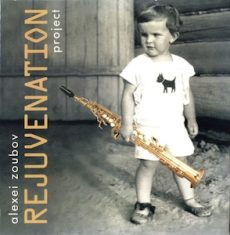
Daily Dose Of Jazz…
Alexei Zoubov was born on November 15, 1936 in Moscow, Russia into a family of scientists. Following the family tradition, he graduated from Moscow University with a master’s degree in physics and was offered a prestigious job that physicists would kill for. However, jazz seduced him in the early Fifties and tuned into Voice of America, BBC and other jazz programs.
In his sophomore University year he started playing clarinet, then switched to the saxophone and joined the early wave of jazz rebirth in the Soviet Union. At this time, Stalin was in power and playing jazz in the Soviet Union was considered not far from committing treason. Zouboc went on the road with the Oleg Lundstrem Big Band. He followed this with a seven year run with Vadim Ludvikovsky Radio and Television Big Band.
Alexei led his Crescendo Quartet, his duo with keyboardist Igor Saulski, Barometer Quintet as well as numerous jazz groups. He worked as a studio musician recording for Studio Melodya and wrote music for films. In 1984, Zoubov settled in Los Angeles, California where he continued to compose and play music.
Over the course of his on going fifty plus year career in music, he’s shared the stage and recorded with Gary Burton, Chick Corea, Pete Cristlieb, Paul Gonsalves, Charlie Haden, Albert “Tootie” Heath, Dick Hyman, Keith Jarrett, Milcho Leviev and Russian musicians like Konstantin Bakholdin, Gennadiy Golshtein, German Lukyanov, Konstantin Nosov, Boris Rychkov and so many others.
Saxophonist Alexei Zoubov continues to perform and record.
More Posts: bandleader,history,instrumental,jazz,music,saxophone
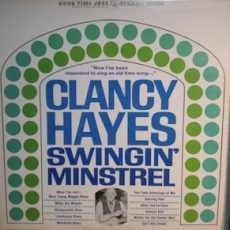
Daily Dose Of Jazz…
Clancy Hayes was born Clarence Leonard Hayes on November 14, 1908 in Caney, Kansas. As a child he learned the drums before switching to guitar and banjo.
Being part of a vaudeville troupe in the Midwest after 1923, Hayes lived in San Francisco from 1927. He became more popular in the 1930s through radio and club performances. From 1938 to 1940 he played in a big band led by Lu Watters, after which he spent a decade with the Yerba Buena Jazz Band, playing rhythm banjo and, on occasion, drums.
Spending almost all of the 1950s singing with Bob Scobey’s band, in the 1960s he led his own bands, which also recorded for various labels. Hayes played with the Firehouse Five Plus Two, Turk Murphy, and a group that evolved into the World’s Greatest Jazz Band. As a vocalist he was noted for his straightforward singing of ballads and his flamboyant delivery of livelier songs.
Banjoist and vocalist Clancy Hayes, who recorded eleven albums as a leader and six with Bob Scobey, died in San Francisco, California on March 13, 1972.
More Posts: bandleader,banjo,history,instrumental,jazz,music,vocal
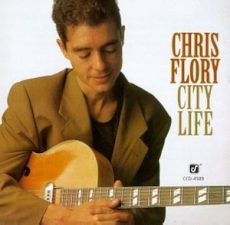
Daily Dose Of Jazz…
Chris Flory was born November 13, 1953 in New York City, New York and began playing guitar in his early teens. Around that time he heard his first jazz album, Forest Flower by Charles Lloyd. He was influenced by seeing live performances of Jimi Hendrix, B. B. King, and Rahsaan Roland Kirk during the late 1960s. Through his friend Scott Hamilton he met musicians and while babysitting the children of Gil Evans he listened to albums by Nat King Cole, Miles Davis, Charlie Parker, and Lester Young. His music has been inspired by Charlie Parker, Charlie Christian, T-Bone Walker.
In his early teens Flory played in rock bands but three years later had a couple jazz lessons with guitarist Tiny Grimes. In the early 1970s he studied at Hobart College, and performed with Hamilton intermittently from 1975 through the early 1990s. He began to record his own albums as a leader after Hamilton’s quintet broke up.
From 1977 to 1983 Chris played in the Benny Goodman Sextet, then worked with Ruby Braff, Judy Carmichael, Roy Eldridge, Illinois Jacquet, Buddy Tate, Bob Wilber, Milt Hinton, Hank Jones, Duke Robillard, and Maxine Sullivan.
Guitarist Chris Flory, who has recorde six albums as a leader and as a sideman twenty-eight, continues to perform and record.
More Posts: bandleader,history,instrumental,jazz,music
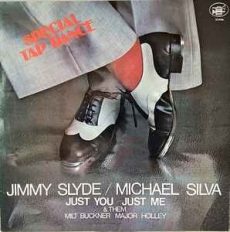
Daily Dose Of Jazz…
Michael Silva was born on November 12, 1925 in New York City, New York. After World War II he worked with Hot Lips Page, Milt Buckner Trio, the Robert Mavounzy Quintette and others. For a decade beginning in 1958 he was a member of Sammy Davis Jr.’s band.
In 1971 he settled in Paris, France where he recorded two albums with Ralph Sutton. Drummer Michael Silva died on March 8, 1990.
More Posts: bandleader,drums,history,instrumental,jazz,music


